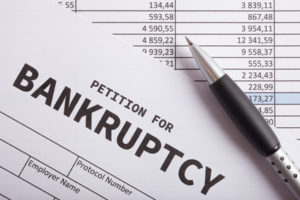 The U.S. Bankruptcy Court for the Southern District of Florida recently denied a mortgagee’s motion to reopen a Chapter 7 case to compel the surrender of real property, due to a five-year delay in filing the motion.
The U.S. Bankruptcy Court for the Southern District of Florida recently denied a mortgagee’s motion to reopen a Chapter 7 case to compel the surrender of real property, due to a five-year delay in filing the motion.
In so ruling, the court agreed with an earlier ruling from the U.S. Bankruptcy Court for the Middle District of Florida (In re Plummer, 513 B.R. 135 (Bankr. M.D. Fla. 2014)), distinguishing “surrender” from “foreclosure,” and holding that a creditor cannot use the Bankruptcy Code to circumvent the obligations imposed by state law.
A copy of the opinion in In Re Kourogenis is available at: Link to Opinion.
The debtor filed a Chapter 7 case in October 2009 and stated an intent to surrender her real property on her schedules. The debtor received her discharge in February 2010 and the case was closed in April 2010.
Five years later, the mortgagee sought to reopen the bankruptcy case to compel the debtor to surrender the real property and preclude her from contesting a foreclosure action pending in state court.
The mortgagee argued that section 521(a)(2)(B) of the bankruptcy code, 11 U.S.C. § 521(a)(2)(B), requires a debtor to perform her intention with regard to property as specified in her schedules within 30 days after the date first set for the meeting of creditors.
However, the bankruptcy court noted that the mortgagee delayed in asserting its rights for five years, and the doctrine of laches barred any argument that the mortgagee had to enforce the 30-day period.
The bankruptcy court further opined that “surrender” as that term is used in section 521(a)(2)(A) does not require the debtor to physically deliver the property to the creditor.
Agreeing with an earlier opinion from a bankruptcy court in the Middle District of Florida (In re Plummer, 513 B.R. 135 (Bankr. M.D. Fla. 2014)), the judge distinguished “surrender” from “foreclosure” and held that a creditor cannot use section 521 to circumvent the obligations imposed by state law. The court noted that both opinions however are at odds with other cases requiring a debtor who “surrenders” property to “refrain from taking any overt act that impedes a secured creditor’s ability to foreclose its interest in the secured property.” See in re Metzler, 530 B.R. 894 (Bankr. M.D. Fla. 2015).
Ultimately, the court concluded that a borrower who indicates an intent to surrender will not necessarily receive a free pass in state court. Specifically, the court noted that judicial estoppel could very well apply to bar a debtor from challenging the foreclosure in state court after the debtor surrendered the property in bankruptcy court.


